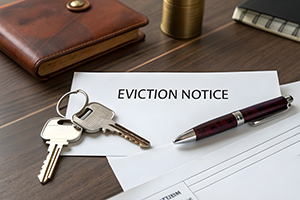Rental house property management is beneficial for landlords and rental owners. Effective management is crucial for many reasons, as it maximizes profits and ensures long-term success.
What is Rental House Property Management?
Property management refers to the oversight of rental properties, typically performed by a professional third party. It is the property manager’s job to ensure maintenance and upkeep, collect rent, screen tenants, and enforce the lease.
Types of Property Management for Rentals
Rental properties come in all shapes and sizes, and property management is designed to adapt to these kinds of properties or units. Here are the types of rental house property management.
- Residential. This includes single-family homes, vacation rental management, short term rental property management, multi-family houses, townhouses, apartments, and condominiums.
- Commercial. This refers to commercial properties, including hotels, malls, restaurants, office buildings, gas stations, and co-working spaces.
- Industrial. This includes manufacturing facilities and plants, warehouses, distribution facilities, and factories.
- Special. This encompasses other types of properties that don’t necessarily fall under the three above categories. These include sports arenas, resorts, schools, churches, theaters, and senior care facilities.
Responsibilities of a Rental Property Manager
Many responsibilities fall under property management, but the specific duties will depend on the agreement between the landlord and the property manager. That said, here are the typical responsibilities of a property manager.
1. Marketing the Property
Getting the word out is the first step to filling a vacancy. Property managers will create compelling listings, take quality photos, and list properties on rental platforms such as Zillow and Trulia.
It is essential to price the property accurately based on current market trends in the area. A property manager can help with this and ensure the property rents quickly, thereby minimizing vacancy costs.
2. Tenant Screening and Leasing
Good tenants make life easier, whereas bad tenants can lead to numerous headaches. Property managers can review credit reports, rental history, employment records, and criminal background checks to select responsible renters. They also handle lease agreements, outlining the expectations for tenants.
3. Rent Collection and Financial Management
It is essential to collect rent on time and in full. A property manager can facilitate this on behalf of the landlord by establishing an electronic payment system and enforcing due dates. If the tenant fails to pay their rent, the property manager can handle late fees.
Additionally, the property manager can track income and expenses. This will allow them to provide accurate reports for budgeting and tax purposes. They can also generate financial statements that will give landlords a better idea of their property’s financial health.
4. Maintenance and Repairs
Regular maintenance is essential to keep the property in good condition and prevent costly repairs in the future. Managers can schedule preventive tasks, such as HVAC servicing and gutter cleaning. When emergencies arise, they can coordinate repairs quickly through trusted vendors.
5. Tenant Communication and Conflict Resolution
Clear communication is the key to building good relationships. Property managers can answer questions, resolve complaints, and enforce lease terms fairly and consistently. If disputes come up, managers can step in to mediate and find solutions that work for everyone.
6. Move-In and Move-Out Process
The move-in and move-out process is critical for any lease. Before a tenant moves in, the property manager can document the unit’s condition through comprehensive inspections. When they move out, the manager conducts another inspection to document any damage beyond the normal wear and tear.
From here, they can determine how much of the security deposit to return to the tenant. After the move-out, the manager will also schedule cleaning and repairs to be completed before the next tenant moves in.
7. Legal Compliance
Rental property laws can vary greatly depending on the location. Managers stay informed about fair housing rules, eviction laws, and local codes. If legal action becomes necessary, such as evicting a tenant, they can handle the process by the law.
Who Needs Rental Home Property Management?
Managing a rental property comes with several challenges and responsibilities. Landlords are primarily the ones who require professional rental house property management. Most landlords don’t have enough time or expertise to run the rental themselves.
Meanwhile, some landlords only want the investment and not the work. They see rental properties as a way to earn extra income, but they don’t want to take on the added responsibility.
For others, it has more to do with distance. A landlord might live far away from their rental property, making it difficult to oversee it personally. In this case, hiring a property manager within the area makes more sense.
There are also property owners who have units or homes involved in affordable housing programs. These owners typically hire property management services due to the complex nature of managing their properties. There are federal and state guidelines to adhere to, and normal landlords aren’t always equipped to handle them.
Self-Management vs Rental Property Management Companies
Landlords can certainly manage their rentals on their own. This approach offers them more control over their properties, but it also demands significantly more work compared to hiring a professional.
With a property manager, landlords can look forward to time savings and convenience. The property manager would take care of everything, deferring only to the property owner for major decisions. The property owner would need to pay the property manager and wait for the rent checks to come in.
Property managers also have legal knowledge and are better equipped to handle complaints. They can answer late-night calls, field questions, and enforce leases. They are also responsible for screening tenants and retaining them in the long term.
Additionally, property management companies have existing relationships with vendors and service providers. By hiring a professional, landlords can gain access to this network.
Although hiring a property manager costs money, the benefits certainly outweigh those of self-management. Of course, it is also essential to hire the right people for the job.
How Much are Rental Property Management Fees?
Rental house property management comes at a cost, but many find it worthwhile. There are two types of fee structures: a percentage of the rent and flat fees.
Most companies charge a percentage of the monthly rent, typically ranging from 8% to 12%. Others may add flat fees for leasing, inspections, and maintenance.
Landlords should ask companies about all charges upfront to make sure there are no hidden fees or surprises. It is best to have a lawyer review the management contract before signing.
Starting With the Right Manager
Rental house property management can be very complicated, especially for landlords who have little to no experience in the area. Hiring a professional is always beneficial, but it is crucial to look for the right company for the job.
TNWLC offers rental property management services to properties and communities in Washington, DC. Call us today at (202) 483-8282 or contact us online to get started!


